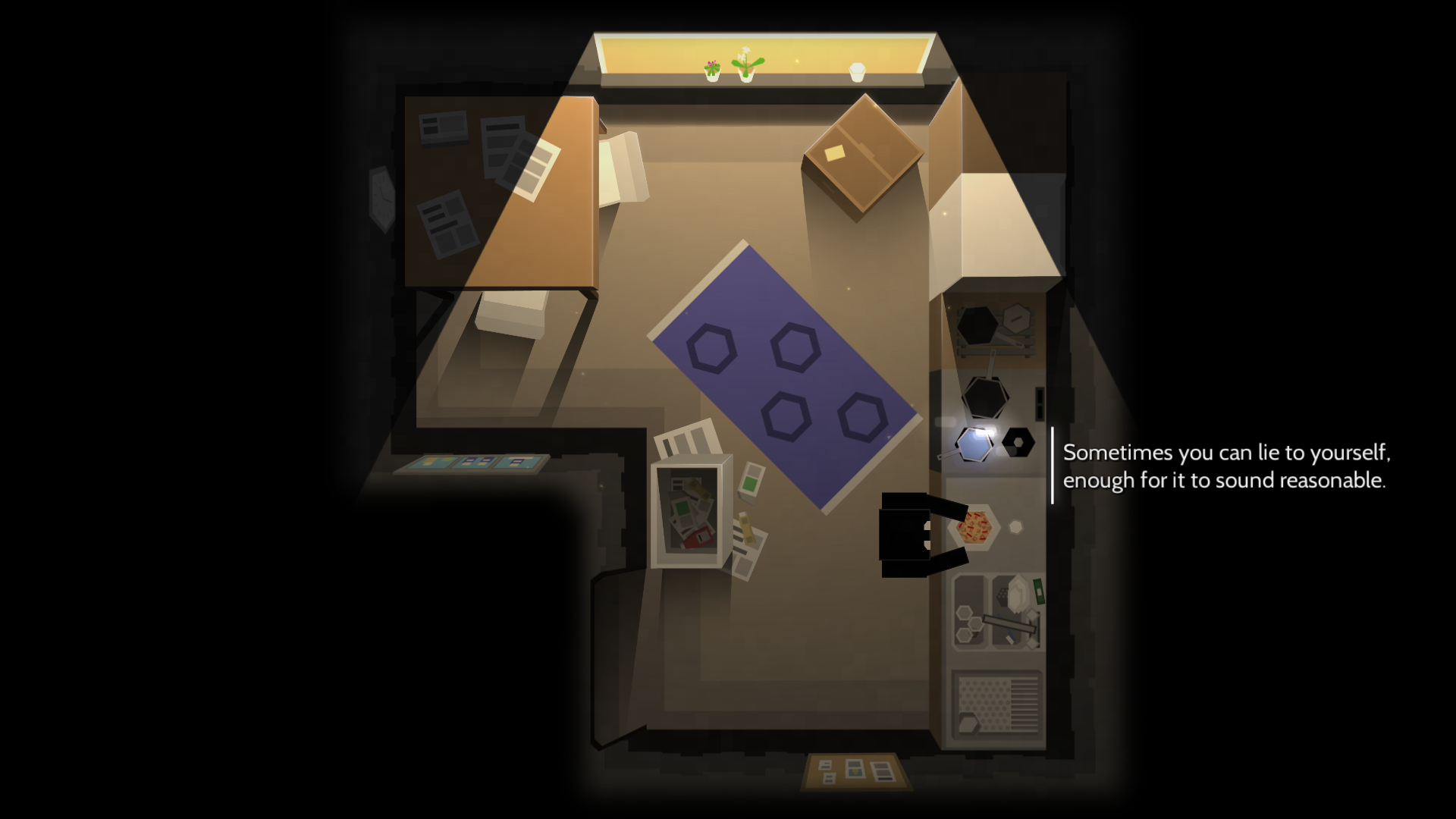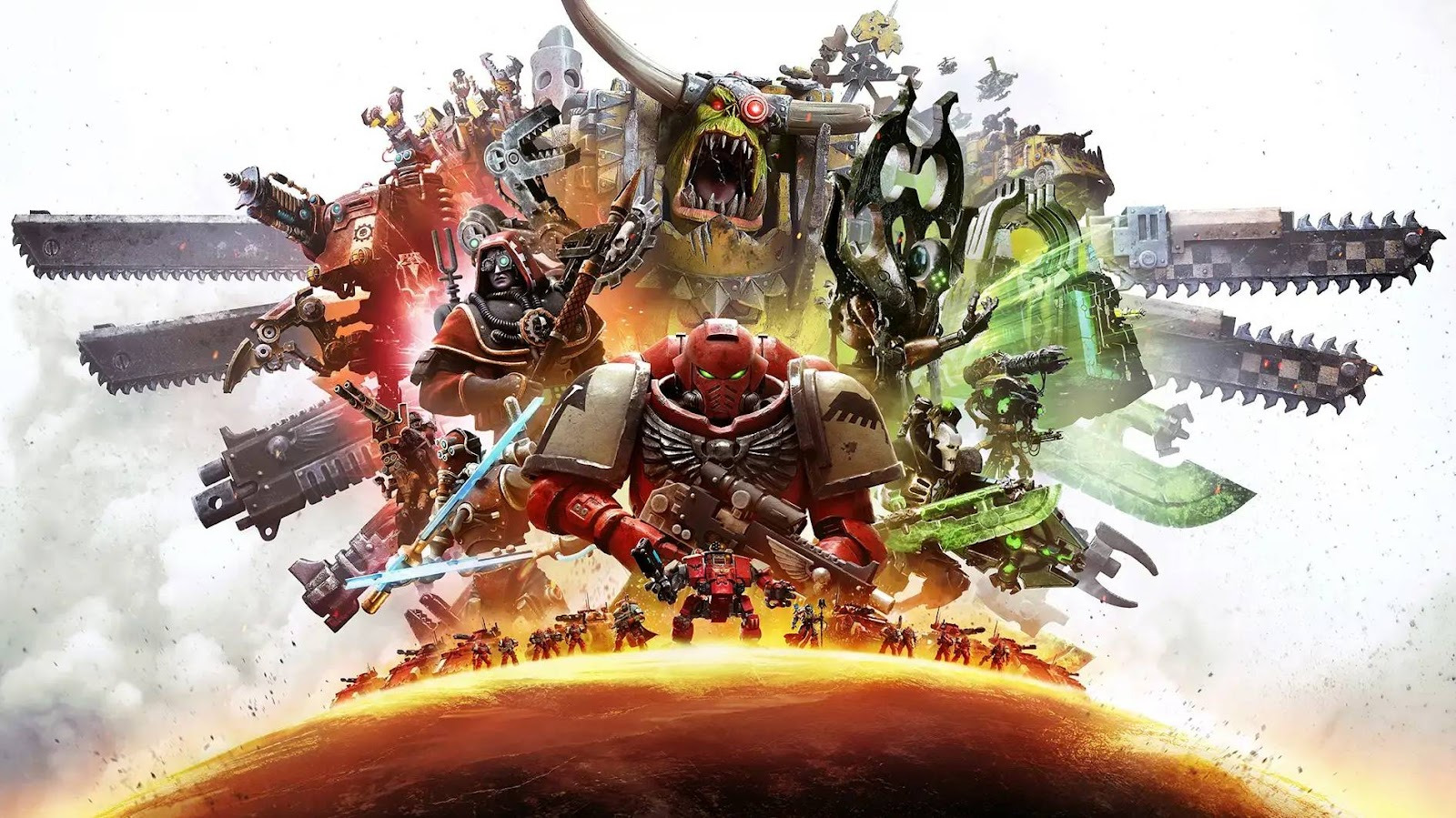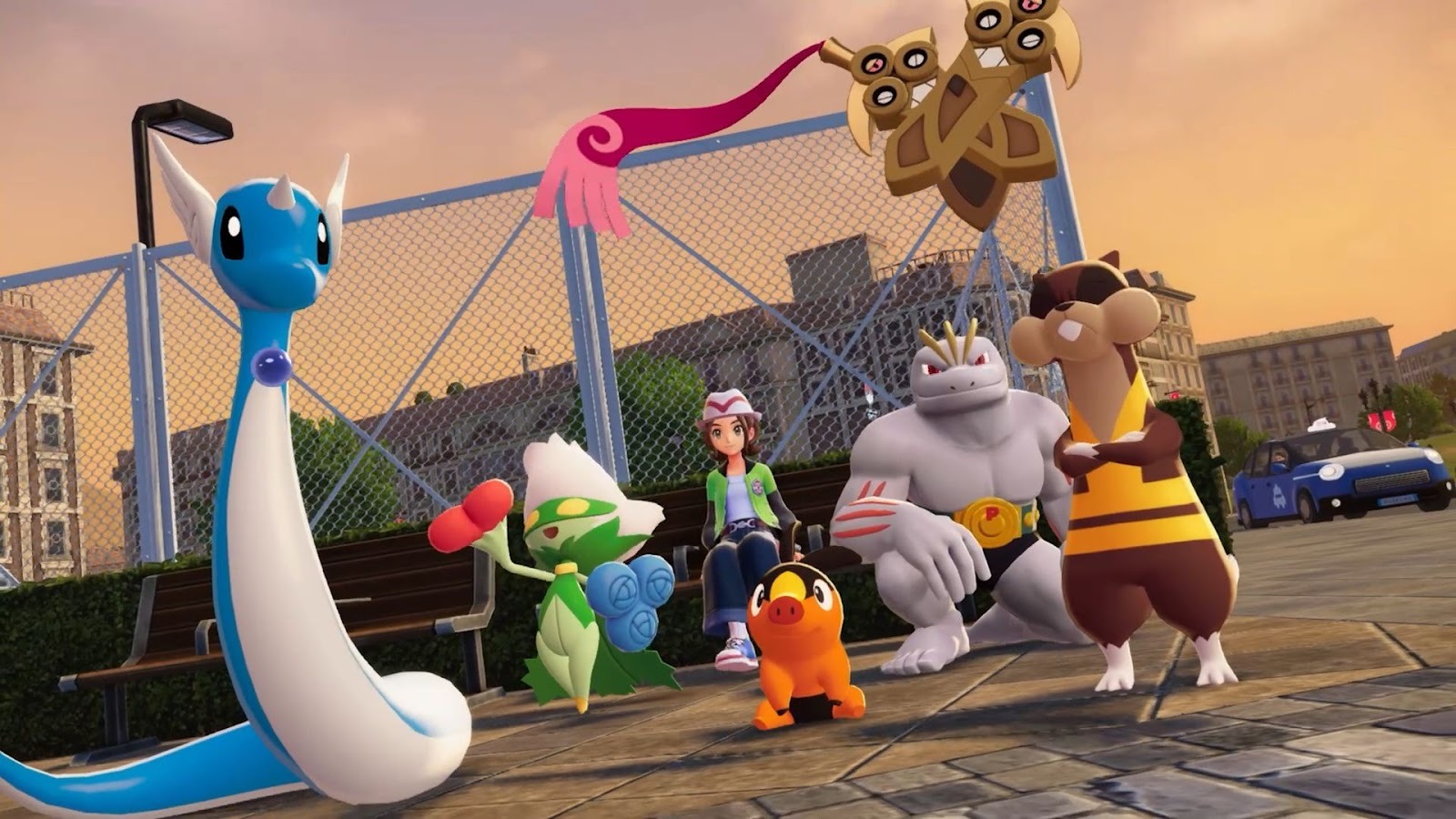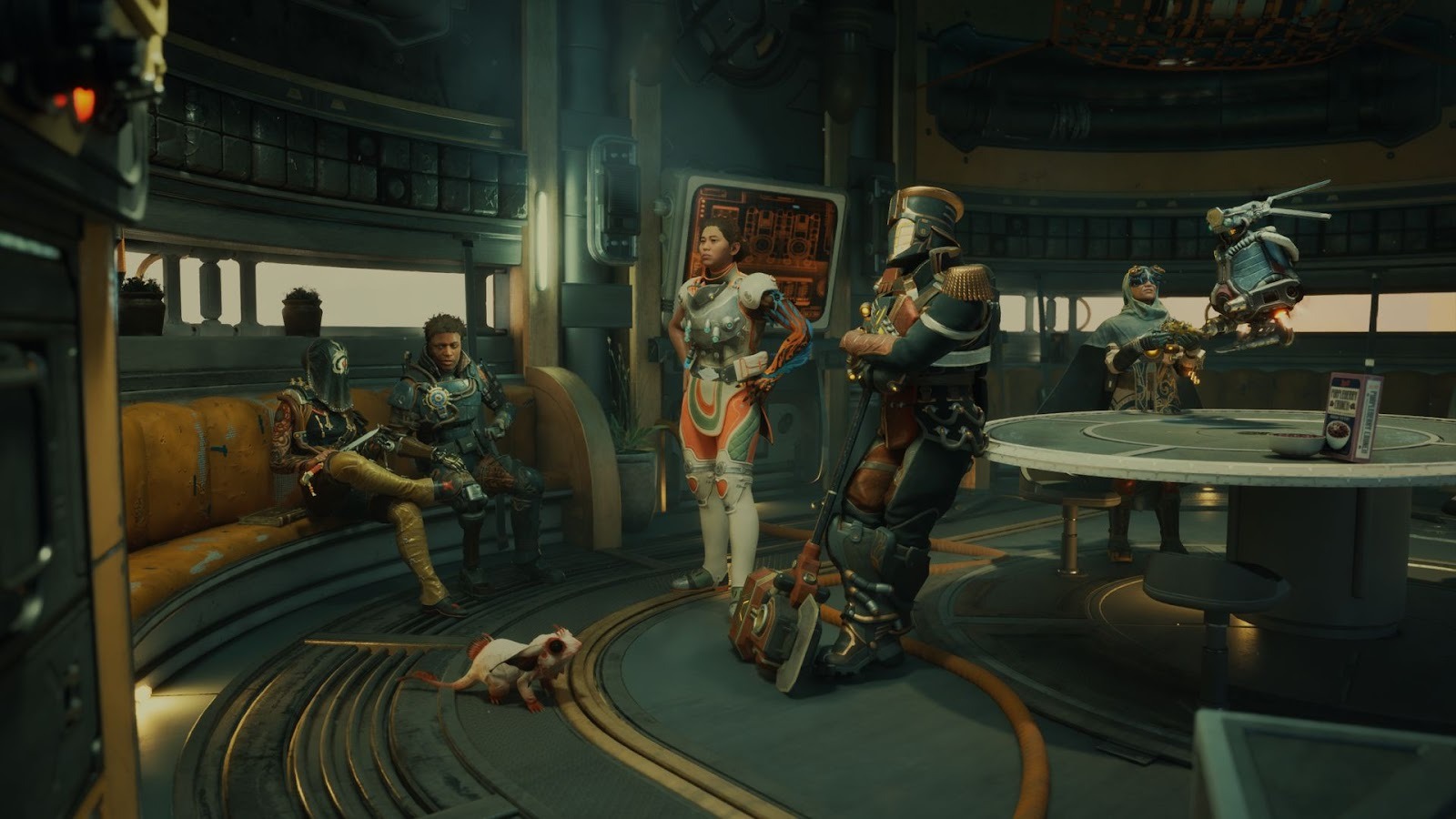You can trust VideoGamer. Our team of gaming experts spend hours testing and reviewing the latest games, to ensure you're reading the most comprehensive guide possible. Rest assured, all imagery and advice is unique and original. Check out how we test and review games here
We, as a community, are very quick to talk about how games help us cope with our mental health if asked (which I did, on Twitter). Perhaps this is because we still feel like our hobby is beset on all sides by naysayers and suspicious parents, and we want to say ‘No, this is why they are so important to me.’ Many people emailed me to talk about the different ways games helped them when they were struggling to cope with things like depression and anxiety disorders – Dark Souls and Bloodborne were mentioned surprisingly often, because they gave the player a sense that they were able to persevere, progress and overcome difficult obstacles, and that was something that could translate to, for example, being able to leave home and get to class. Games have systems that you can learn and become familiar with, so you’re secure making choices in those environments. There’s less chance to say or do the ‘wrong thing’, and games can also offer ways to socialise, either as multiplayer games or by giving you something you’re confident talking about with others.
A little while ago I spoke to Dr Douglas Gentile, a developmental psychologist who specialises in the subject, about the kind of effects games can have on our brains, and one of the things he said that his studies had shown is that addiction to gaming – i.e. playing games to the extent that they negatively impact other areas of your life – can actually be comorbid with mental illnesses like depression and anxiety. Not only are many games designed to have something of an addictive play loop, if you’re using games as a coping mechanism to feel comfortable it can prevent you from recognising the problem you have, or from doing something else that might be a better way for you personally to treat the problem.
We’re still not sure what precisely video games can do to our heads. They definitely do something. When you feel a rush from playing a game that’s your brain triggering a real, chemical response in you, which is one of the reasons we like games – we can ride that tidal wave of adrenaline without being in any danger. This is also why I think it’s only a matter of time until a VR game kills someone, e.g. ‘here, Nan, have a go playing Resident Evil 7 on this VR headset I got for Christmas, this’ll be some laugh, ho ho, oh no Jack Baker’s sudden appearance has triggered some kind of cardiac event in Nan.’ More research is being done all the time, but it’s got a way to go. Hopefully we learn enough in time to save theoretical nans everywhere.
/https://oimg.videogamer.com/images/0895/4b2d69e8-11d9-41e2-ba80-b93e414f612a_Outlast-2-1.jpg)
In the meantime, the games keep evolving, and as they do we’re getting more nuanced approaches to mental health in games. Eurogamer’s Johnny Chiodini has covered games like Child of Light, The Unfinished Swan and Tiny Tina’s Assault on Dragon Keep in a video about games that do mental health well, as well as going into more depth on mental health and games in a series on the subject called Low Batteries.
I heard Dr. Paul Fletcher, a psychiatrist and professor of health and neuroscience at Cambridge University, speak about media portrayals of mental illness and psychosis at the Wellcome Trust. ‘I think sometimes people muddle up psychosis with psychopathy, and psychopathy means something very different and is often associated with frontpage violence. Actually, the reality is that people who’ve been through psychosis are much more likely to have violence done to them than they are to do violence,’ he explained. ‘There can be a tendency to use mental illness or psychosis as shorthand for motivation for a character to be unpredictable and violent. I think that’s very damaging and problematic because it’s a two dimensional representation. It doesn’t show the person struggling with their own reality.’
Games like Outlast can take the old ‘the inmates have taken over the asylum’ gag – that probably your dad made when he and mum left you alone at home for the first time – and then tack a ‘literally!’ on the end. You can wander around Mount Massive with your camera, looking at all the people lying on the floor in cells without clothes on as set dressing for it being a horrible place, and every so often these people will try and kill you, so they probably deserve it, right? We don’t examine this sort of thing too closely, even though we still engage in the behaviour and even though there are ghosts in our very language. Whenever you say the word bedlam to mean uproar, disorganisation and confusion, it’s from the historical nickname for Bethlehem Hospital in London, still a psychiatric hospital today and a cultural shorthand for the worst kind of abuse psychiatric patients can receive.
/https://oimg.videogamer.com/images/a4bb/f0aa7f77-edac-4541-9680-47313f8ef326_Hellblade_PhotoMode_04.png)
Indie games are always ahead of the mainstream on any number of curves. Zoe Quinn’s Depression Quest, an interactive text game, came out in 2013, for example. But the number of games that are explicitly about mental health, and try and convey part of the experience of having a mental illness, is growing; this trailer for The Thin Silence came out less than a month ago. Please Knock on My Door, which came out on PC in September last year, follows someone trying to manage their deteriorating mental health and keep up the routines of their everyday life. Developer Michael Levall told me it initially started out as way for him to try and understand his own situation, and was about internal reflection. I also spoke to Dylan Siegler, who made a narrative game called alone. that deals with a young man trying to work through his social anxiety (the email I initially got promoting its launch even had the subject line ‘Social Anxiety Simulator’). Fletcher, meanwhile, was speaking at the launch of Hellblade: Senua’s Sacrifice, which he consulted on through the dev process.
Hellblade is a bit betwixt and between, described as ‘AA’ or ‘independent AAA’ rather than being a full AAA title, but it was also financially successful and received a lot of mainstream attention, winning a lot of awards in the process. The protagonist, Senua, is in the midst of a psychotic break following a severe traumatic experience. Because the player controls Senua they have to experience everything she does, which includes the constant company of a host of voices (collectively known as The Furies) telling Senua different things, but there is no distinction between what is ‘real’ and what isn’t, since it all is Senua’s reality. Developer Ninja Theory consulted extensively with both people that experienced and experience psychosis, as well as mental health professionals and experts like Fletcher. Tracy Bartlett, of Recovery College East, spoke about RCE’s role in sharing lived experiences of trauma and psychosis with the development team, and said that ‘We were really impressed with how Ninja did not want the game to represent another stereotypical discriminatory view around mental health.’ Bartlett said that everyone at Recovery college was ‘delighted’ to be involved, and Fletcher in particular said he believes Senua to be anti-stigmatising as a character: ‘I think the person they’ve created in it is truly a hero; she’s a fully fleshed out person who is not just a representation of a list of symptoms, and I think possibly that, for me, is one of the most powerful achievements.’
But Bartlett also said that ‘Within the context of the game Senua has a very unique experience – and everyone’s experience of their own mental health challenge is incredibly unique to that individual – of how past trauma impacts her.’ Ninja Theory has received praise from people who say the game has helped them connect with family members or friends where before there had been a barrier in the form of their illness, but there are also people who found Hellblade to be invalidating and undermining. Ninja Theory did a lot of valid and worthwhile research, but the team themselves didn’t have first hand experience of the disorder they were portraying. Games like Depression Quest, or alone., or Please Knock on My Door aren’t big shiny games, but their creators have some of that experience (though they’re about much less socially stigmatised forms of mental illness).
PKoMD started life as a small prototype in Flash (also initially called Alone) which Levall said he likes to imagine helped him cope ‘in the same way that writing a diary can help someone reflect on their life and what they need to do to get better,’ and Siegler said alone. is a fictionalisation and exaggeration of some of his own college experience. In PKoMD the main character has to try and maintain a daily routine: eating, showering, getting enough sleep, and getting to work on time. Everything they do affects their total Mental Fortitude, represented by numbers (similar to how, in Depression Quest, you are unable to to choose some of the options on screen if your depression is too severe). Levall said he tried several different methods to show the effect that a depressive episode can have, and decided what to call the numbers was ‘quite the problem’ during development. ‘They are the summary of everything the main character does,’ he explained, ‘And while that is quite difficult to put into a single name, it becomes quite easy to convey via a number that is affected by every interaction the player takes.’ These become more important in several key interactions at work: are you feeling strong enough to be able to talk to your colleagues?
In PKoMD you don’t often see the main character interacting with others, but this forms the majority of alone. as the player character, Derek forces himself to interact with other students in an effort to make friends. He has little success, however, and because he’s struggled with social interaction for a while Derek has become bitter towards his peers and cynical about most kinds of relationships. alone. has fewer choices and interactions for the player, but you’re privy to all of Derek’s inner thoughts and occasional rants, and Siegler is clear that Derek shouldn’t be someone to look up to or emulate. He is intentionally written as a hypocrite given to bouts of sophistry.
‘I don’t think anyone is a purely good or evil person inside their own mind; they probably all have good thoughts and messed up thoughts, and probably a lot more messed up thoughts than they’d like to admit,’ Siegler explained. ‘I thought that perhaps people would be able to relate to a character who regularly thinks messed up things, who isn’t necessarily proud of those thoughts, but continues to have those thoughts and believe in them anyway.’ Siegler said that some of the writing is based on how he thought when he was Derek’s age, but he has since grown out of those thought processes, and hopes that players who follow those processes now might recognise how Derek’s logic is faulty and re-evaluate themselves. Ultimately Derek’s cynicism and disdain prevent him from recognising that he actually has formed a meaningful relationship with another student, though this is not a comment from Siegler that if anyone struggles with anxiety disorders it’s all their own fault. ‘I find that many people write off social anxiety as not a real problem, like you can just be social and make friends if you really want to,’ he told me.
/https://oimg.videogamer.com/images/d7bc/d283e405-e7c7-46ff-84ae-f1ee4f949199_bhliep.jpg)
One ironic commonality of these games is that, although they’re about mental disorders, a lot of them warn players who have those same disorders that they may not be able to play them. In the article linked above, Dia Lacina said that Hellblade triggered symptoms. So who are these games for? ‘I wanted to make [alone.] brutally honest,’ Siegler said, ‘So people who don’t have social anxiety can hopefully get some sort of sense of what it’s like.’ Levall said that he hopes PKoMD offers something to both players who have depression and players who don’t. ‘I reasoned that, if someone is depressed and finds a game about depression, they themselves will most likely be able to tell if that’s something they want to go through.’ In fact, Levall went back and added a few texts to the game that only appear if a person is on their second or later playthrough, trying to imagine the state of mind they might be in. He is aware from experience that people who actively seek out games like PKoMD to feel less alone with their own struggle, and wanted it to contain a message of hope: even though you might not think it, there are people who care for you – and if the player is one of those people, he wanted to say that ‘sometimes we need them to ask first.’
PKoMD is also narrated, one voice represented by white text and one by red, and Levall thinks they’re the most interesting part of the game that, simultaneously, almost nobody picked up on. ‘The two voices, white and red, are both different versions of the main character. The white one is the future version of that same person looking back, trying to make sense of why he was depressed and what he did to get through,’ said Levall. ‘The red voice is the main character’s inner voice, their subconscious tainted by self doubt and hatred.’
Thus, Levall explained, the player isn’t taking on the role of the main character but the depression itself. ‘Just like depression the player pushes the main character around, forces them to think about harmful things, even forcing them to stay home from work at their own whim.’ The game has several endings, but in one of them the main character will begin to move and leave the apartment on their own. Any intervention from the player makes the character stop and shake, but eventually they leave. ‘To me, that is a message of hope that I wanted to send the player. Depression can and will try to keep us in and harm us, but in the end we can find the strength to break free.’
Levall does think that games can be valuable, especially in their potential to offer safe spaces or social interactions. ‘Bringing people together through a shared fantasy is perhaps one of our medium’s biggest strengths, and we shouldn’t forget what an amazingly positive effect that can have on someone’s mental state!’ But, at the same time, PKoMD was never intended to be a substitute for human interaction. It’s designed as a ‘call to action’ to prompt someone, whether or not they’re suffering, to talk to someone they love. Though the space is sometimes needed to gather your strength, Levall believes that fleeing into a fantasy world in a game will only delay facing problems you have. ‘If I’m feeling down,’ he says, ‘I’d take a cup of tea and a close friend at my kitchen table above playing a game alone any day of the week.’
/https://oimg.videogamer.com/images/98e4/9f909321-38fe-4f2a-81cd-7978ec7f3a86_Thinking.png)
The Unfinished Swan
- Platform(s): iOS, PC, PlayStation 3, PlayStation 4, PS Vita
- Genre(s): Adventure, Indie, Puzzle







